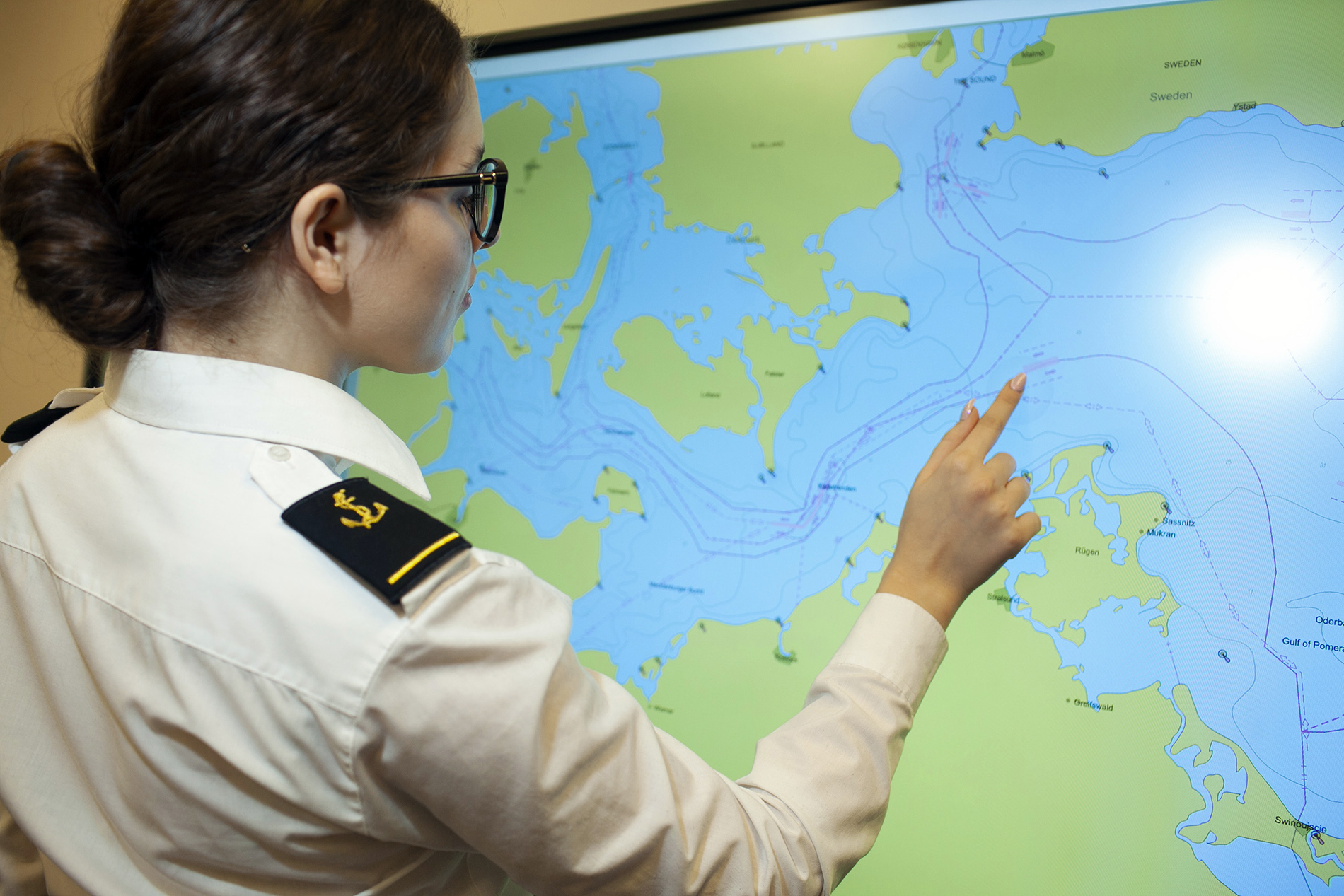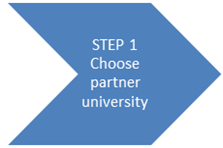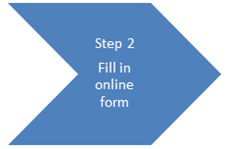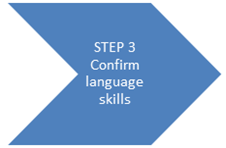Erasmus+ Outgoing students

Studies exchange
- Open call for application for ERASMUS studies exchange
- How to apply for a study mobility?
- How does ERASMUS+ exchange for studies look like?
- Before the exchange
- Partner universities
- Open call for ERASMUS+traineeships (internships)
- How do I apply for a traineeship?
- What is an ERASMUS+ traineeship?
- Where can I go for an ERASMUS traineeship (type of institution)?
- Where can I go for an ERASMUS traineeship (countries)?
- How do I prepare for the ERASMUS+ traineeship?
- How long does ERASMUS+ traineeship last?
- Scholarship rates
- Contact details

Open call for application for ERASMUS+ studies exchange
All interested students are invited to apply for ERASMUS+ study exchanges for the academic year 2024/2025. The call is open until the 8th of March 2024.
This call refers to exchanges in the winter and summer semesters of the 2024/2025 academic year.
This call refers to exchanges in the winter and summer semesters of the 2024/2025 academic year.
How apply for study mobility?
It is very simple! All it takes is 3 simple steps.

You just have to choose a partner university you want to visit. While doing so check whether you fulfil the criteria for mobility (whether mobility is possible in the field of study you are interested in and whether you meet the language criteria. It is also worth checking what the curriculum is like at the university of your choice - this will allow you to choose a semester where the classes are closer to your study programme in the PM. You can choose up to three partner universities by specifying your first, second and third choice.

The next step is to submit your application form
Forms must be completed online (note you will need to log in to the office portal using your school email address). Forms can be submitted until 8th of March 2024.

During the call, you will be invited to confirm your knowledge of the exchange language (the language of the country you are going to or the language in which you will have classes). This test will take place online and you will be informed of the date via email from MUS Language Center.
You will be exempted from this requirement if you have a language certificate proving your knowledge of the foreign language, at least at the level required by the host university, or if you are a student studying in English at MUS (if you are applying for the exchange in English).

You just have to choose a partner university you want to visit. While doing so check whether you fulfil the criteria for mobility (whether mobility is possible in the field of study you are interested in and whether you meet the language criteria. It is also worth checking what the curriculum is like at the university of your choice - this will allow you to choose a semester where the classes are closer to your study programme in the PM. You can choose up to three partner universities by specifying your first, second and third choice.

The next step is to submit your application form
Forms must be completed online (note you will need to log in to the office portal using your school email address). Forms can be submitted until 8th of March 2024.

During the call, you will be invited to confirm your knowledge of the exchange language (the language of the country you are going to or the language in which you will have classes). This test will take place online and you will be informed of the date via email from MUS Language Center.
You will be exempted from this requirement if you have a language certificate proving your knowledge of the foreign language, at least at the level required by the host university, or if you are a student studying in English at MUS (if you are applying for the exchange in English).

Have you already followed the steps described? You are officially a candidate for ERASMUS+ mobility.
You will be presented with the results of your application by the University ERASMUS+ Coordinator (via email) approximately three weeks after the call for applications is completed.
You will be presented with the results of your application by the University ERASMUS+ Coordinator (via email) approximately three weeks after the call for applications is completed.
How does ERASMUS+ exchange for studies look like?
Under the Erasmus+ programme, you can complete part of your study programme at a university in another country participating in the programme. The partner University needs to have a partnership agreement with the Maritime University of Szczecin.
The exchange can last 1 or 2 semesters and you can go on it in your 2nd year of study at the earliest. You attend classes at the partner university for a fixed period and sit for examinations. Depending on the partner university, you study either in the language of the country you are going to or in English (checklist of partners for details).
Under the ERASMUS+ programme, you do not pay tuition fees for your studies at the partner university, and you only have to pay the same fees as local students (e.g. for the issuing of your student ID card).
When you are there, you are under the supervision of the International Office of the respective host university and you can turn to them if you have any questions. Each university also prepares information material for students about the university: the place where you are studying, the country you are going to, and they often organise events for students to learn more about the culture of the country and to get to know local students and other international students.
Many universities also have an ERASMUS STUDENT NETWORK - a student organisation that supports international students.
The exchange can last 1 or 2 semesters and you can go on it in your 2nd year of study at the earliest. You attend classes at the partner university for a fixed period and sit for examinations. Depending on the partner university, you study either in the language of the country you are going to or in English (checklist of partners for details).
Under the ERASMUS+ programme, you do not pay tuition fees for your studies at the partner university, and you only have to pay the same fees as local students (e.g. for the issuing of your student ID card).
When you are there, you are under the supervision of the International Office of the respective host university and you can turn to them if you have any questions. Each university also prepares information material for students about the university: the place where you are studying, the country you are going to, and they often organise events for students to learn more about the culture of the country and to get to know local students and other international students.
Many universities also have an ERASMUS STUDENT NETWORK - a student organisation that supports international students.
Before the exchange
Preparing for ERASMUS exchange for studies consists of two parts: first, the student must be qualified for the exchange by home institution (based on knowledge of the foreign language required by the host institution and academic performance), and then the partner university must accept the student based on an application form.
A Learning Agreement for Studies, an agreement between the student, the host university and the home university, is prepared for each student leaving for studies, specifying the programme of classes in which the student is to participate at the host university, and the number of ECTS credits for each subject. The agreement contains a list of subjects to be completed at the foreign university so that MUS can recognise and give credit for the study period abroad. The agreement must be signed by all three parties before the student leaves.
Amendments may be made to the agreement provided that all parties accept them and that they are made in writing. Full completion of the agreed study programme implies the credit of the home university. In some cases, it will also be necessary to make up academic differences (if the study programme at the partner university does not allow full credit for the semester based on the courses completed there, especially in case of STCW degrees).
In addition to the agreement, an agreement must be signed with the home university, which specifies in detail the conditions of the exchange and the payment and settlement of the scholarship (among others: the duration of the stay at the host university, the amount of the scholarship, the method of its payment, the deadline by which the scholarship must be settled with the home university, etc.).
A Learning Agreement for Studies, an agreement between the student, the host university and the home university, is prepared for each student leaving for studies, specifying the programme of classes in which the student is to participate at the host university, and the number of ECTS credits for each subject. The agreement contains a list of subjects to be completed at the foreign university so that MUS can recognise and give credit for the study period abroad. The agreement must be signed by all three parties before the student leaves.
Amendments may be made to the agreement provided that all parties accept them and that they are made in writing. Full completion of the agreed study programme implies the credit of the home university. In some cases, it will also be necessary to make up academic differences (if the study programme at the partner university does not allow full credit for the semester based on the courses completed there, especially in case of STCW degrees).
In addition to the agreement, an agreement must be signed with the home university, which specifies in detail the conditions of the exchange and the payment and settlement of the scholarship (among others: the duration of the stay at the host university, the amount of the scholarship, the method of its payment, the deadline by which the scholarship must be settled with the home university, etc.).
Partner universities
Detailed information on partner universities including information on language requirements and available classes in a PDF file
More information on host universities can be obtained from the Department for Admissions and International Affairs (room 102, PM building at Wały Chrobrego 1-2), erasmus@pm.szczecin.pl, tel. 91-48-09-345 or directly from the websites of the partner universities.
The list refers to study exchanges
As far as training is concerned, it is possible to go to institutions from all countries eligible for ERASMUS+.

More information on host universities can be obtained from the Department for Admissions and International Affairs (room 102, PM building at Wały Chrobrego 1-2), erasmus@pm.szczecin.pl, tel. 91-48-09-345 or directly from the websites of the partner universities.
The list refers to study exchanges
As far as training is concerned, it is possible to go to institutions from all countries eligible for ERASMUS+.

Open call for ERASMUS+ traineeships (internships)
We invite all interested students to apply for traineeship under the ERASMUS+ programme. The call is open from 19.01.2024 till 08.03.2024.
The call is open to students who will have completed their first year of undergraduate studies at the time of departure. ERASMUS+ placements are also open to those who have already completed their studies (traineeships as a graduate) provided that did apply when they were still students.
The current call applies to:
1) summer term 2024 (funded for the academic year 2023/2024)
2) winter semester of the academic year 2024/2025
3) summer semester of the academic year 2024/2025
4) summer semester of the academic year 2025
The call is open to students who will have completed their first year of undergraduate studies at the time of departure. ERASMUS+ placements are also open to those who have already completed their studies (traineeships as a graduate) provided that did apply when they were still students.
The current call applies to:
1) summer term 2024 (funded for the academic year 2023/2024)
2) winter semester of the academic year 2024/2025
3) summer semester of the academic year 2024/2025
4) summer semester of the academic year 2025
How do I apply for a traineeship?
It's very simple! There are just 2 simple steps
1) The first step is to submit an ERASMUS+ traineeship application form online In the form you specify where you would like to go and when you would like to go. At this stage these are declarations, you do not yet need to have the confirmation from the host institution.
The deadline for the submission of forms in this call is 08.03.2024.
2) After submitting your application, you will be invited to confirm your knowledge of the traineeship language (the language of the country or the language used in the company). This test will be organized online by MUS language center and you will be informed of the date via school email.
You will be exempted from the test if you have a language certificate confirming your knowledge of the foreign language, at least at B1 level, and if you are a student studying in English at MUS (if you plan a traineeship in English).
Have you already followed the steps described? You are officially an ERASMUS+ traineeship candidate. You will be contacted by the ERASMUS+ Coordinator and she will discuss with you how to contact the companies, where you would like to do your placement.
Final qualification will take place once you have been accepted by the host institution.
1) The first step is to submit an ERASMUS+ traineeship application form online In the form you specify where you would like to go and when you would like to go. At this stage these are declarations, you do not yet need to have the confirmation from the host institution.
The deadline for the submission of forms in this call is 08.03.2024.
2) After submitting your application, you will be invited to confirm your knowledge of the traineeship language (the language of the country or the language used in the company). This test will be organized online by MUS language center and you will be informed of the date via school email.
You will be exempted from the test if you have a language certificate confirming your knowledge of the foreign language, at least at B1 level, and if you are a student studying in English at MUS (if you plan a traineeship in English).
Have you already followed the steps described? You are officially an ERASMUS+ traineeship candidate. You will be contacted by the ERASMUS+ Coordinator and she will discuss with you how to contact the companies, where you would like to do your placement.
Final qualification will take place once you have been accepted by the host institution.
What is an ERASMUS+ traineeship?
Under the Erasmus+ programme, you can undertake a traineeship (internship) in a foreign company or enterprise. this can be either your obligatory traineeship or an additional placement as a student or graduate.
A Learning Agreement for Training, an agreement between the student, the host institution and the home university is prepared for each student leaving for traineeship, specifying the programme of training in which the detailed programme of the traineeship as well knowledge skills and competences to be acquired by the end of the traineeship are defined.
The agreement must be signed by all three parties before the student leaves.
Such an exchange can last from 2 to 12 months and you can go on at the earliest after the second semester of your engineering or bachelor's degree programme.
During the traineeship, you have the opportunity to practise your profession for a set period of time, either in the language of the country you are going to or in another language that the host company will accept you in.
A Learning Agreement for Training, an agreement between the student, the host institution and the home university is prepared for each student leaving for traineeship, specifying the programme of training in which the detailed programme of the traineeship as well knowledge skills and competences to be acquired by the end of the traineeship are defined.
The agreement must be signed by all three parties before the student leaves.
Such an exchange can last from 2 to 12 months and you can go on at the earliest after the second semester of your engineering or bachelor's degree programme.
During the traineeship, you have the opportunity to practise your profession for a set period of time, either in the language of the country you are going to or in another language that the host company will accept you in.
Where can I go for an ERASMUS traineeship (type of institution)?
ERASMUS+ placements can take place in different types of institutions (see below for a list of all categories), any public or private organisation active in the labour market or in the field of education, training and youth.
For example, such an organisation could be:
For example, such an organisation could be:
- a public or private small, medium or large enterprise (including social enterprises);
- a public body at the local, regional or national level;
- a social partner or other representative of a particular profession, including chambers of commerce, craft/professional associations and trade unions;
- a research institute;
- a foundation; a school/institute/educational centre (at any level from pre-school to upper secondary education, including vocational and adult education);
- non-profit organisation, association, NGO;
- a body offering vocational guidance, counselling and information services;
- a higher education institution of a participating country holding an Erasmus Charter for higher education;
- a Polish institution active in the labour market in the country to which the student is going (e.g. a foreign branch of a Polish company).
Those are the general rules ( types of organisation listed apply to all possible types of mobility for students.
Which type of institution is best for you depends on which type of institution fits your field of study and what you are expected to do in the future. Among MUS students, the most popular traineeships institutions will certainly be the companies in the maritime, TFL and IT industries and others related to the students' fields of study.
Please also note, that you cannot take Erasmus+ placements in EU institutions or those in charge of managing EU programmes.
Which type of institution is best for you depends on which type of institution fits your field of study and what you are expected to do in the future. Among MUS students, the most popular traineeships institutions will certainly be the companies in the maritime, TFL and IT industries and others related to the students' fields of study.
Please also note, that you cannot take Erasmus+ placements in EU institutions or those in charge of managing EU programmes.
Where can I go for an ERASMUS traineeship (countries)?
The activities of the ERASMUS+ programme (including student traineeship) include cooperation and mobility to EU Member States (Austria, Belgium, Bulgaria, Croatia, Cyprus, Czech Republic, Denmark, Estonia, Finland, France, Germany, Greece, Hungary, Ireland, Italy, Latvia, Lithuania, Luxembourg, Malta, the Netherlands, Poland, Portugal, Romania, Slovakia, Slovenia, Spain, Sweden) candidate countries and potential candidates (Turkey, North Macedonia, Serbia) EEA/EFTA countries (Iceland, Liechtenstein, Norway)
How do I prepare for the ERASMUS+ traineeship?
There are 2 elements to preparing for such an exchange - first, the student must be qualified for the traineeship (based on knowledge of the foreign language in which he/she wants to do the placement and academic performance), and then the host company must accept him/her based on the application submitted.
A Learning Agreement for Training, i.e. an agreement between the student, the host company/institution and the home university, is prepared for each outgoing student, specifying the programme of the traineeship to be carried out in the company. The programme of the placement will depend on the type of placement and the profile of the company, but it must always be related to the student's field of study. The agreement must be signed by all three parties before the student leaves. Amendments may be made to the agreement provided that they are accepted by all parties and are made in writing. Full completion of the agreed programme means that the home university will give credit for the placement (for obligatory placements included in the study programme).
In addition to the agreement, an agreement must be signed with the home university, which specifies in detail the conditions of the mobility and the payment and settlement of the grant (e.g. duration of the stay at the host institution, amount of the grant, method of payment, deadline for settling accounts with the home university, etc.).
A Learning Agreement for Training, i.e. an agreement between the student, the host company/institution and the home university, is prepared for each outgoing student, specifying the programme of the traineeship to be carried out in the company. The programme of the placement will depend on the type of placement and the profile of the company, but it must always be related to the student's field of study. The agreement must be signed by all three parties before the student leaves. Amendments may be made to the agreement provided that they are accepted by all parties and are made in writing. Full completion of the agreed programme means that the home university will give credit for the placement (for obligatory placements included in the study programme).
In addition to the agreement, an agreement must be signed with the home university, which specifies in detail the conditions of the mobility and the payment and settlement of the grant (e.g. duration of the stay at the host institution, amount of the grant, method of payment, deadline for settling accounts with the home university, etc.).
How long does ERASMUS+ traineeship last?
According to the rules of the ERASMUS+ programme, a traineeship lasts a minimum of 2 months and a maximum of 12 months. The duration of a particular placement therefore depends on the arrangements with the host institution and the timing of the placement.
However, due to the limited budget, the Maritime University of Szczecin has decided that funding in the form of a grant will be awarded for a maximum of 6 months - any longer stay can be carried out under zero funding (without a grant). This means that the traineeship may last up to 12 months, but the student will receive co-financing for a maximum of 6 months.
Possible funding for a longer period will only be granted if:
However, due to the limited budget, the Maritime University of Szczecin has decided that funding in the form of a grant will be awarded for a maximum of 6 months - any longer stay can be carried out under zero funding (without a grant). This means that the traineeship may last up to 12 months, but the student will receive co-financing for a maximum of 6 months.
Possible funding for a longer period will only be granted if:
- The scholarship will be awarded to all participants including those previously qualified for the non-scholarship e and the University still has free funds available.
- The University has free funds, however, in an amount lower than sufficient to finance a 2-month exchange for a person from the waiting list.
- The University will obtain additional funding from the National Agency of the ERASMUS+ Programme allowing for financing the additional stay.
Scholarship rates
The final amount of the scholarship will depend on:- the country to which the student is going,
- the length of stay (calculated to the nearest 1 day),
- the financial situation of the student or graduate.
Students or graduates who as of 8th March 2024 will receive a maintenance grant from the University (stypendium socjalne in Polish) are considered under the ERASMUS programme as having fewer opportunities and will receive an ERASMUS+ grant increased by 250 EURO per month. In case of students, the condition is to receive the grant as of 08.03.2024, in case of graduates - as of the last year of studies.
The student's state of health -students and graduates with disabilities are considered in the ERASMUS+ programme as people with fewer opportunities and receive an ERASMUS+ grant plus 250 EURO per month.
*The rates for the academic year 2024/2025 will be published once it is announced by the National Agency. According to information from the NA to date, an increase in monthly rates is planned compared to 2023/2024.
The student's state of health -students and graduates with disabilities are considered in the ERASMUS+ programme as people with fewer opportunities and receive an ERASMUS+ grant plus 250 EURO per month.
*The rates for the academic year 2024/2025 will be published once it is announced by the National Agency. According to information from the NA to date, an increase in monthly rates is planned compared to 2023/2024.
Contact details
In case of questions regarding the Erasmus+ Programme please contact
Ewa Cerebież-Tarabicka MA
Erasmus+ Coordinator
tel. +4891 48 09 345
email erasmus@pm.szczecin.pl
Department for Admissions and International Affairs (room. 102)
Maritime University of Szczecin
Wały Chrobrego 1-2
70-500 Szczecin
Poland
Ewa Cerebież-Tarabicka MA
Erasmus+ Coordinator
tel. +4891 48 09 345
email erasmus@pm.szczecin.pl
Department for Admissions and International Affairs (room. 102)
Maritime University of Szczecin
Wały Chrobrego 1-2
70-500 Szczecin
Poland
Files to download:
- MUS partner universities 2024 Size: 166KB

